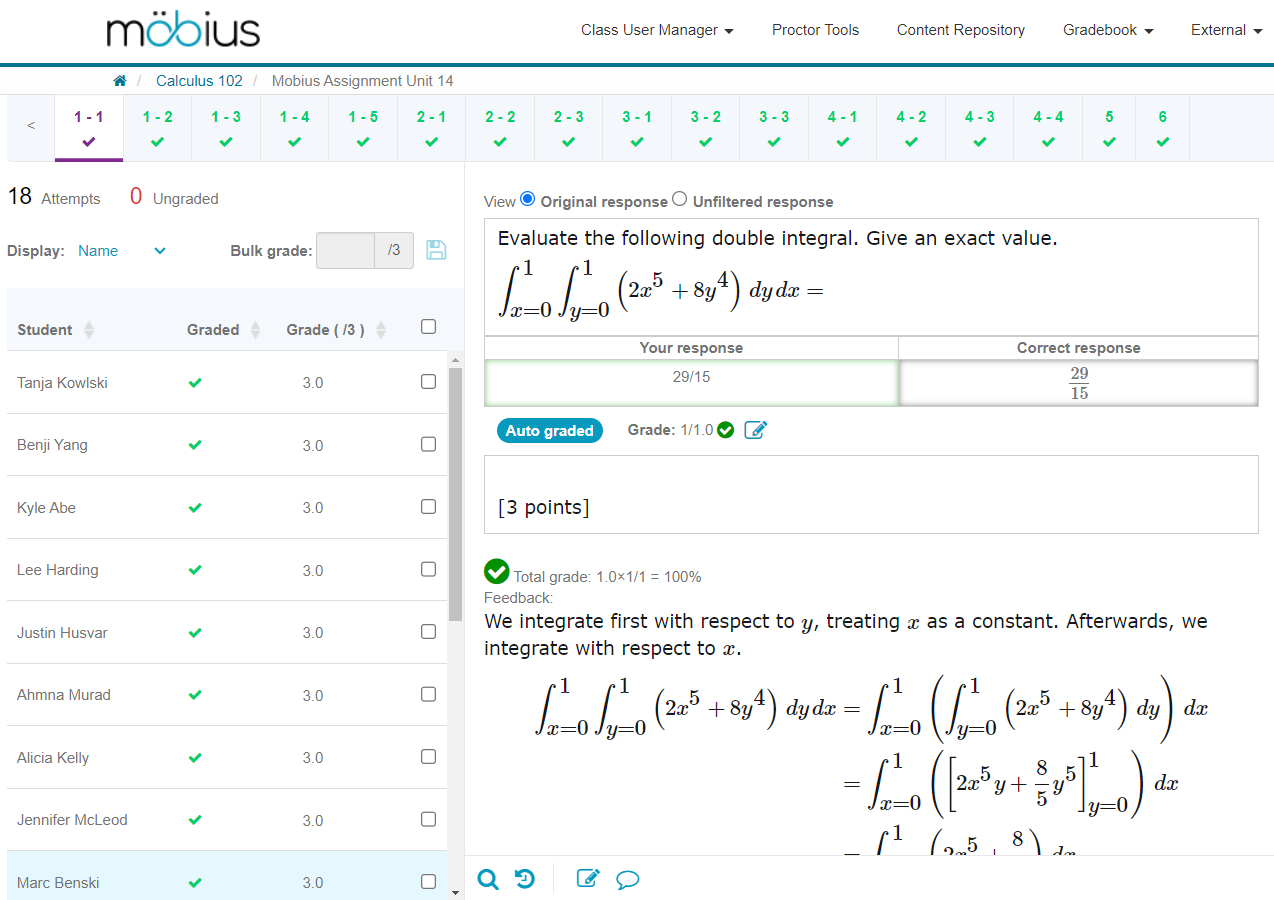Möbius Grading: Digital Assessment Streamlined for STEM Education

Ever graded a stack of physics quizzes and wished for a faster, more insightful way to assess your students’ understanding? As a STEM educator in India, you understand the need for a more efficient way to assess your students’ understanding – a method that goes beyond the limitations of paper and pen. This is where Digital Assessment with Möbius Grading steps in!
This article delves into Möbius Grading, a powerful tool designed to meet the specific needs of STEM educators and maximize the impact of your curriculum.
“Möbius, by DigitalEd India, is a blended STEM education platform, offering multifaceted digital assessment, automatic grading, interactive content, personalized learning pathways, and more.”
Möbius Grading: A Window into Student Understanding
Möbius Grading is designed to facilitate the grading of digital assessments. It offers a collaborative environment where educators can evaluate student performance comprehensively.
This system seamlessly integrates with the broader Möbius platform, providing detailed insights into student submissions, performance, and comprehension. By using various views and filters, educators can visualize individual student efforts on assignment questions, making tailored support and grade management tasks more accessible and efficient.

Innovating STEM Education with Möbius Grading
STEM education demands precision and a thorough understanding of complex concepts. The Möbius Grading system plays a crucial role in achieving this by offering automated assessment tools that cater specifically to the needs of STEM educators.
This system provides detailed statistical data on question performance, helping educators gauge the difficulty level and effectiveness of their questions. This data-driven approach ensures that assessments are aligned with your teaching goals, enhancing the overall learning experience for students.
Here’s why the Möbius Grading holds particular significance for STEM educators in India:
- Focus on Inquiry-Based Learning: STEM education thrives on the spirit of inquiry. Möbius offers detailed feedback capabilities, enabling educators to provide students with constructive criticism that fosters deeper understanding of concepts, a crucial aspect of STEM learning.
- Data-Driven Instruction: The detailed performance data provided allows educators to identify areas where students might be struggling. This facilitates adjustments to teaching strategies and curriculum delivery, ensuring a data-driven approach that optimizes learning outcomes.
Read more: From Insights to Action: The Role of Data Analytics in Higher Education
- Addressing Diverse Needs: STEM classrooms are often home to students with varying learning styles and paces. Obtain and maintain granular insights into your student’s progress to cater to individual needs, ensuring inclusivity and success for all students.
Exploring the Comprehensive Möbius Grading System
The Möbius Grading, a core component of the Möbius platform, allows educators to take a deep dive into student data. Here’s a closer look at some of its key features:

- Detailed Student Insights
Möbius Grading offers multiple views and filters to analyze individual student efforts on assignment questions. This feature enables educators to identify areas where specific students may need additional support. By understanding individual performance, educators can provide more tailored guidance, ensuring that all students grasp the necessary concepts.
- Automated Item Statistics
Möbius automatically generates detailed statistical data points, known as item statistics, for each question. These statistics include success rates, p-values, discrimination indices, and basic counts, providing a comprehensive overview of how students are performing. This information is crucial for understanding whether the questions meet the intended educational objectives.
- Performance Evaluation
The success rate and p-value data points offer a high-level summary of question difficulty and student comprehension. Discrimination indices, such as the d-value, p-biserial, and r-biserial, help educators differentiate between strong and struggling students. Basic counts (correct, partial, and incorrect responses) give an overall picture of usage and performance, aiding in the accurate evaluation of question effectiveness.
Digital Assessment Evolved: The Möbius Grading Advantage
Take online assessment in STEM education to the next level, leveraging significant advantages over traditional methods:
- Advanced Data Interpretation
Möbius goes beyond basic data collection by offering flexible options for data interpretation. Educators can choose to view an overall summary from all uses of a question or focus on specific activities, such as assignments or exams. This flexibility is invaluable for drawing meaningful conclusions from the data. For example, understanding how a question performs in different contexts—such as final exams versus homework assignments—can inform decisions on curriculum adjustments and teaching strategies.
- Enhancing Teaching with Actionable Insights
The rich data provided by Möbius allows educators to make informed decisions about their teaching methods and assessment strategies. By analyzing question performance, educators can determine whether a question needs to be reworded or revisited in future sessions. This iterative approach ensures that assessments remain relevant and effective, ultimately leading to better learning outcomes for students.
- Tailored Support for Students
One of the significant benefits of the Möbius Grading system is its ability to offer tailored support to students. By closely monitoring individual student performance, educators can identify those who may be struggling and provide additional resources or personalized feedback. This targeted approach helps bridge learning gaps and ensures that all students have the opportunity to succeed.
- Streamlining the Grading Process
Grading can be a time-consuming task, especially in large classes. Möbius simplifies this process with automated grading in many aspects of digital assessment. This automation not only saves time but also ensures consistency and accuracy in grading. Educators can focus more on providing meaningful feedback and less on administrative tasks, enhancing the overall teaching and learning experience.
Conclusion: Streamlining Assessment with Confidence
Möbius Grading empowers educators to embrace online assessment with confidence. By providing in-depth insights into student performance and question effectiveness, it fosters a learning environment that is data-driven, personalized, and geared towards achieving optimal outcomes in STEM education.
With its robust features and user-friendly interface, Möbius ensures that educators have the tools they need to provide accurate, efficient, and insightful assessments.
Embrace the future of digital learning and make grading easy with Möbius.